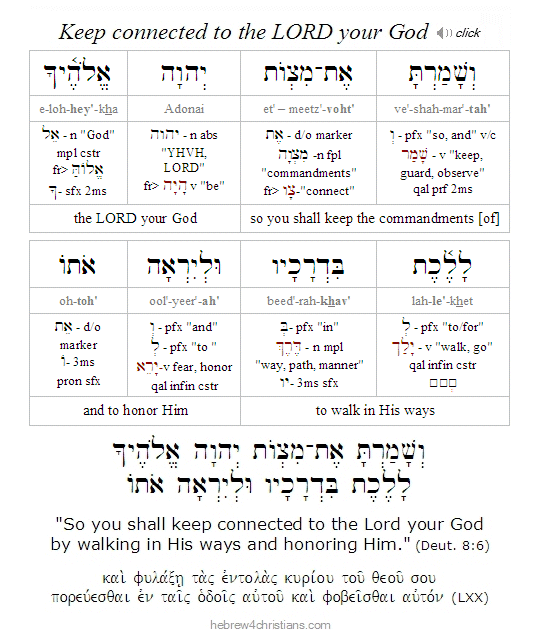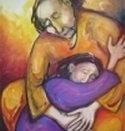|
From our Torah portion this week (i.e., parashat Eikev) we read: "And now, Israel, what does the LORD your God require of you, but to fear the LORD your God, to walk in all his ways, to love him, to serve the LORD your God with all your heart and with all your soul, and to keep the commandments and statutes of the LORD, which I am commanding you today for your good?" (Deut. 10:12-13). Ultimately we must make the choice whether we will respect life or not, since that is the question set before us... In this present world, God "hides" so that people may seek him (Isa. 45:15; Matt. 13:10-15). The voice of conscience may be suppressed and the revelation of nature ignored; moreover, some things are perceived only if they are looked for in the right way, for instance, the Divine Presence is not apprehended apart from humility and reverence. We must "make room" for wonder; we must open the "eye of the heart" to see what is greater than our everyday vision. "It is good to look at the sky often, as this helps develop the awe of God." Indeed the word for fear, yirah (יִרְאָה), is connected with the word for seeing, ra'ah (רָאָה). When we really see life as it is, we will be filled with wonder over the glory of it all. Every bush will be aflame with the Presence of God and the ground we walk upon shall suddenly be perceived as holy (Exod. 3:2-5). Nothing will seem small, trivial, or insignificant. In this sense, "fear and trembling" (φόβοv καὶ τρόμοv) before the LORD is a description of the inner awareness of the sanctity and eternal significance of life itself (Psalm 2:11, Phil. 2:12).
Connecting with God is paradoxical. We find verses that teach both the fear of the Lord (i.e., his power), and others that teach the amazing love of the Lord (i.e., his grace). We are drawn to God in adoration, appreciation, wonder, and love, and yet we are compelled to shrink back because of His overwhelming power, glory, holiness, and radiance. Therefore we see "the disciple whom Jesus loved" both leaning on his chest but also falling on his face in "dreadful adoration" (John 13:23; Rev. 1:17). Only when these heart attitudes are combined is the heart balanced. But the fear of the Lord is primary (see Psalm 111:10; Prov. 1:7, 9:10), and when we walk in it, we are released from the common fears of men by apprehending a far surpassing power that overrules all things. Again, it is a paradox: if we fear lesser things we lose sight of the awe of God; but if we first revere God, we will lose sight of lesser fears.
In Jewish tradition, seeing the Presence of God in all things is called yirat ha-rommemnut (יִרְאַת הָרוֹמְמוּת), or the "Awe of the Exalted." We might get a sense of this reverential awe when we behold the canopy of stars in the night sky, or when we look down from atop a mountain peak, or when we catch site of a spectacular sunset. Or we might experience it during the birth of a baby or the death of a loved one... This sense of awe or "transcendent mystery" is also called yirat Adonai (יִרְאַת יְהוָה), the "fear of the Name." It presents a holy hush, a feeling that you are standing before something utterly wonderful, sacred, set apart, mysterious, and profoundly significant; it both attracts yet causes you to draw back...
Hebrew Lesson
Deuteronomy 8:6 reading (click):
 |
|



